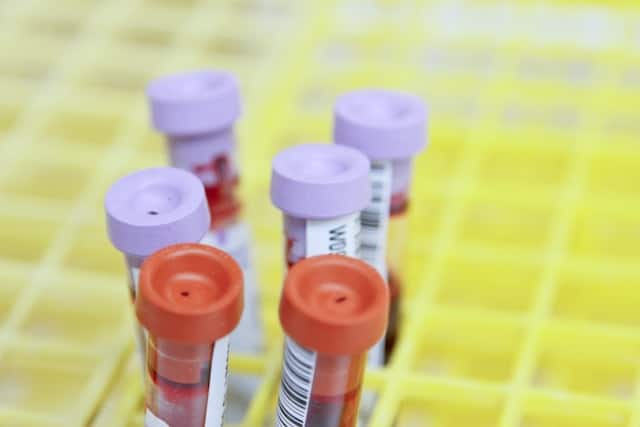Designed to prevent protein plaques and deposits from forming in the brain, Annovis Bio’s Alzheimer’s drug buntanetap failed to slow the disease in its latest trial.
Across Alzheimer’s disease and other dementias, protein plaques and deposits in the brain — like beta-amyloid, tau, and TDP-43 — are linked to inflammation, cell death, and cognitive decline. Drugmaker Annovis Bio is developing buntanetap, a drug that prevents the formation of multiple types of these toxic proteins, with the goal of treating the mild and moderate stages of Alzheimer’s and Parkinson’s disease.
On April 29th, 2024, Annovis Bio released results from its Phase 2/3 clinical trial of buntanetap in people diagnosed with mild to moderate Alzheimer’s disease. During recruitment, the drugmaker did not require participants to undergo testing to verify the presence of Alzheimer’s biomarkers, like amyloid or tau, in the brain.
The 325 participants were randomly assigned to receive a placebo or 7.5mg, 15mg, or 30mg of the drug over the course of 12 weeks. At the end of the study, the participants who received the drug did not show any slowing in cognitive decline compared to the placebo group. However, this point was buried in the press release—Reuters had to issue a correction after erroneously reporting that the trial was successful.
After the end of the clinical trial, the company conducted additional testing to see if any particular groups of participants in the study may have benefited from the drug. The company’s press release mostly discussed this analysis, which only included data from 90 of the participants, who had mild Alzheimer’s disease and were confirmed to have biomarkers of Alzheimer’s disease via blood test.
“When we initiated the study in January 2023, the gold standard for measuring Alzheimer’s-related amyloid and tau biomarkers were CSF and PET scans,” the company wrote in the press release. “Clinically validated plasma biomarkers became commercially available in 2024.” Blood tests for Alzheimer’s have been available for participant recruitment since 2020.
In this analysis, the patients who received the drug did a bit better than the placebo group by the end of the study. Aydin Huseynov, an analyst from the Ladenburg Thalmann brokerage told Reuters that “investors perhaps wanted to see the data from all 325 patients.”
What’s next for buntanetap?
Annovis Bio is set to release data from a Phase 2/3 clinical trial which tested the drug for Parkinson’s disease. But the company also delayed the release of data in January because of “data cleaning.” Five months later, the trial’s results haven’t been publicly shared.
The company is also planning to conduct an additional Phase 3 trial of buntanetap in participants with early Alzheimer’s disease who are confirmed to have Alzheimer’s pathology in the brain.




